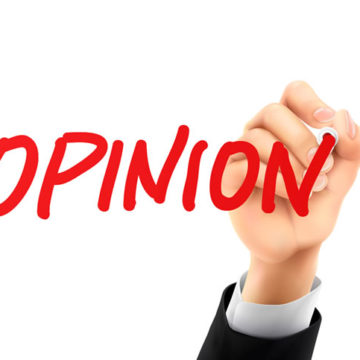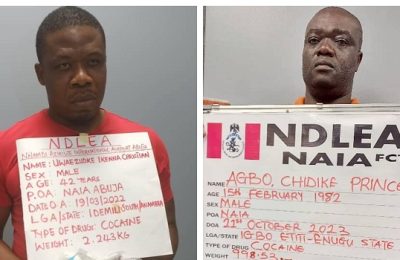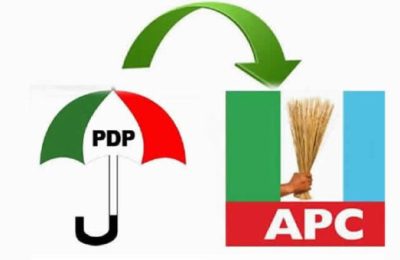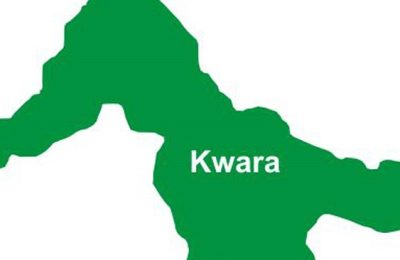

When the Central Bank of Nigeria (CBN) floated the naira and abandoned the hard peg system in June 2023, the move was done to allow buyers and sellers to set their own exchange rates in the forex market. By implication, the apex bank, through the measure, authorised banks to sell foreign exchange freely at market-determined rates, in alignment with President Bola Tinubu’s commitment to a single exchange rate regime.
The move then was aimed at attracting investment and addressing concerns raised by multilateral lending organisations about the negative impact of multiple currency rates on the Nigerian economy.
According to Cowrywise, the floating exchange rate allowed buyers and sellers in the official FX market to quote rates they find comfortable, adding that the move also grants more access to the dollar and reduces the need for foreign investors to go through the CBN for currency transactions.

Cowrywise had then said the next steps after floating the Naira was for the apex bank to prioritise dollar supply, establish a hedging mechanism, have attractive market yields, transparency, remove controls, and clear the dollar backlog, with the moves expected to improve trade and bring various benefits to Nigeria’s economy.
While the Federal Government’s decision to unify exchange rates and implement comprehensive FX reforms became a significant milestone in the country’s economic journey, certain moves akin to economic sabotage later came along the line, which triggered severe distortion in the country’s FX market and culminated in a consistent free fall of the naira.
In response to growing national concern over the FX market instability, the CBN, few months back, embarked on series of economic recovery measures to sanitise the forex market and address the seething exchange rate distortions with the ultimate aim of stabilising the Nigerian economy. While some economists have commended the CBN’s concerted measures, others, especially those of Northern extraction, have since been very critical of some of the major CBN’s FX policies.

The latest of the Northern sentimental war against President Bola Tinubu’s FX reform policies came in mien of an opinion article where the writer accused the CBN of imposing “draconian regulatory and supervisory guidelines for banks, cryptocurrencies and Bureau De Changes (BDCs) in an attempt to solve the weak, unstable, and unattractive naira.”

The writer had claimed that the managed-floating exchange rate system is the problem, and not the market players as believed by the apex bank. However, this position is not entirely correct given some of the undercurrent gains that have greeted the country’s FX system since its unification.
In an analysis it posted some months back, Forbes Africa had commended the CBN’s forex market unification, saying it had yielded positive developments within a short while.
“The country’s foreign exchange unification policy has garnered favourable sentiment in the financial landscape, enabling individuals and businesses to access financial services more efficiently. Experts say these steps toward a collective and transparent foreign exchange system could contribute to Nigeria’s economic recovery,” Forbes stated.
According to Forbes, by taking the initiative, the CBN had allowed the deposit money banks (DMBs) and foreign exchange market dealers to freely buy and sell forex at market-determined rates, which it said, marked a shift from the previous multiple forex regime to a “free-floating” system.
“The foreign exchange unification policy yielded positive developments in the country’s financial landscape as customers quickly embraced the initiatives introduced by the DMBs, which aim to provide seamless and convenient foreign exchange services. This shift reflects the increased confidence in the unified exchange rate system and the government’s commitment to creating a transparent and efficient FX market,” Forbes added.
Meanwhile, the opinion writer had heavily faulted the apex bank’s recent clipping of BDCs’ size, saying they shouldn’t be blamed for the current naira crisis as it is “a result of the faulty and controversial reforms by Tinubu and his Lagos boys.” However, the writer sadly failed to prove why the BDCs and Binance, the embattled international cryptocurrency platform, aren’t aiding FX market volatility and excessive money laundering as proven by the CBN and global economic giant like the UK, USA and Germany.
In the opinion, the writer claimed that if not suspended, the CBN’s recently instituted guidelines for both BDCs and Binance operations in the country “would create severe economic disruptions, including a liquidity crisis, frozen payment and trading systems, restricted credit availability and zero confidence in the economic system,” and that bank runs, and hoarding of physical cash and other assets would be the order of the day.
It should be noted that previous administrations in Nigeria, including those of former President Goodluck Jonathan (South-South) and Muhammadu Buhari (North-West) had also carried out some of the latest CBN measures in the past in a bid to protect and rescue the naira from dramatic devaluation, which clearly negates the claim that the policies are based on ethnic sentiments.
It will be recalled that the last time the CBN revoked licences of the BDCs was the Sanusi Lamido Sanusi era as CBN governor. Sanusi, in fact, made the revocation move twice during his tenure in 2013. Reacting to the first one, which affected about 236 BDCs, the former CBN chief had in February that year said the licence revocation became necessary because the affected BDCs fell short of the minimum operational standards, which was exactly the same reasons the CBN gave in its latest move.
Disclosing this while briefing newsmen at the end of the Monetary Policy Committee (MPC) meeting (MPC) in Abuja, Sanusi had said most of the affected BDCs were in shortfalls of the regulatory requirements such as mandatory deposit payment and they are involved in cash sales to those who have no intention to use the money outside the shores of the country as required.
While noting that each of the affected institutions had cases to answer and knew reasons why their operating licences were revoked, Sanusi had said: “We want those that purchase dollar to use it for transaction outside the Nigerian shore.”
However, in September of the same year, the CBN boss also ordered the revocation of the licences of another 20 BDCs due to foreign exchange malpractices. Sanusi, who made this known, at Ikoyi Club’s 75th Anniversary Lecture held in Lagos that month, said the owners of the affected BDCs would be charged with money laundering, because they bought dollars from commercial banks without accounting for what the dollars were needed for, nor the purchasers of the money.
The present CBN governor, Olayemi Cardoso, had at different fora emphasised the fact that the ongoing FX reforms of the apex bank was not ethnically conceived against licensed BDCs who consistently meet regulatory benchmarks, but that the moves are targeted at the unregistered ones or those, who, having bagged their registrations through questionable channels, are sabotaging the apex bank’s effort to stabilise the country’s economy and boost the value of the naira against the dollar.
Speaking at the first MPC meeting of the CBN held in February since he assumed office in September 2023, Cardoso had said the extant country’s economic challenges are behind the “very aggressive regulatory environment” for the BDCs market and that the apex bank would use all in its powers to curb arbitrage.
“Too many people had gone into that sector and as at last time, I believe we had over 5,000 Bureaux de Change, going on to 6,000 which definitely had different interests depending on when they saw themselves.
“At some point in time, the Bureau de Change was used strictly with the intention of many who applied for these licences to take advantage of the different windows in the foreign exchange market and in the process, arbitrage the system on an ongoing basis.
“We are hoping that by the time these guidelines come up, we propose that for certain categories of BDCs in a particular location, the minimum share capital will be half a billion naira, and for those who choose to work throughout the country, their share capital is N2 billion.
“We are also putting strict regulations as to who should be a potential owner of a BDC. In order words, we don’t expect it to be an all-comers’ affairs; we expect it to be those who are serious and who genuinely want to provide services for Nigerians, and not for themselves,” Mr Cardoso had said.
Meanwhile, the apex bank also recently said its latest revocation move was informed by the inability of the affected 4,173 BDCs to meet regulatory guidelines.
In a statement signed by its acting Director, Corporate Communications, Sidi Hakama, on Friday last week, the CBN said the affected institutions failed to observe at least one of its regulatory provisions, which include payment of all necessary fees, including licence renewal, within the stipulated period, compliance and rendition of returns in line with its stipulated guidelines, as well as strict observance of its directives and circulars, particularly those on anti-money laundering, countering the financing of terrorism and counter-proliferation financing regulations.
The director further stated that “the CBN is revising the regulatory and supervisory guidelines for Bureau de Change operations in Nigeria,” and that “Compliance with the new requirements will be mandatory for all stakeholders in the sector when the revised guidelines become effective.”
However, while the CBN has maintained that the BDCs licence withdrawal is in exercise of its powers as enshrined under the Bank and Other Financial Institutions Act 2020, Act No. 5, and the Revised Operational Guidelines for Bureaux De Change 2015, it is expected that any of the affected BDCs which has clear evidence on how it has not flouted any of the CBN’s guidelines should rather come out publicly with same giving the apex bank’s decision ethnic brandishing.
Meanwhile, the opinion writer also contended that “Restricting certain entities like banks, government agencies, and NGOs not to have ownership stakes in BDCs will limit the capital and expertise available to BDCs,” and that “Restricting the BDCs from engaging in financial activities like collecting deposits, granting loans, dealing in gold or engaging in capital market activities will limit their ability to innovate and diversify revenue streams.” But the Wikipedia aptly records that the BDCs “offer an opportunity for money laundering, and several countries require them to register as money service businesses and subject them to their anti-money laundering measures,” which is exactly what the CBN has been doing in the case of Nigeria according to economic observers.
For Binance, it has been widely reported that the global cryptocurrency giant allegedly breeds financial infractions and under-cutting constituted jurisdictions. Aside from the fact that the CBN governor recently said about $26 billion had left the country through Binance Nigeria from unidentified sources in one year, investigation shows that global economic giants like US, UK and Germany, among others, have all inflicted severe restrictions against the cryptocurrency company over gross violation of their anti-money laundering laws. Already, the US government has ordered the cryptocurrency exchange company to pay over $4.3 billion in fines and reparations after its founder, Changpeng Zhao, pleaded guilty to breaking the American anti-money laundering laws and violating sanctions, bringing an end to a long-running investigation by US prosecutors and regulators.
It will be recalled that having been declared illegal in Nigeria by the Securities and Exchange Commission (SEC) in June, 2023, the cryptocurrency company recently courted the Federal Government anger when the Special Adviser to President Bola Tinubu on Information and Strategy, Bayo Onanuga, accused it of manipulating the country’s foreign exchange (FX) market.
Consequently, the House of Representatives Committee on Financial Crimes recently summoned the Chief Executive of Binance Holding Limited, Richard Teng, over alleged involvement in terrorism financing and money laundering in the country. While this is still subject to investigation and judicial proof, it will be recalled that the UK government three years ago, sanctioned the Binance company and issued a warning to consumers about the platform, which has, in recent times, been under scrutiny globally.
According to Reuters, the UK Financial Conduct Authority (FCA), in a notice dated June 25, said Binance Markets Ltd. “must not, without the prior written consent of the FCA, carry out any regulated activities… with immediate effect.”
Reuters reported that the UK’s Binance sanction came after Germany’s financial regulator, BaFin, had warned that Binance also risked being fined for offering its securities-tracking digital tokens without publishing an investor prospectus.









